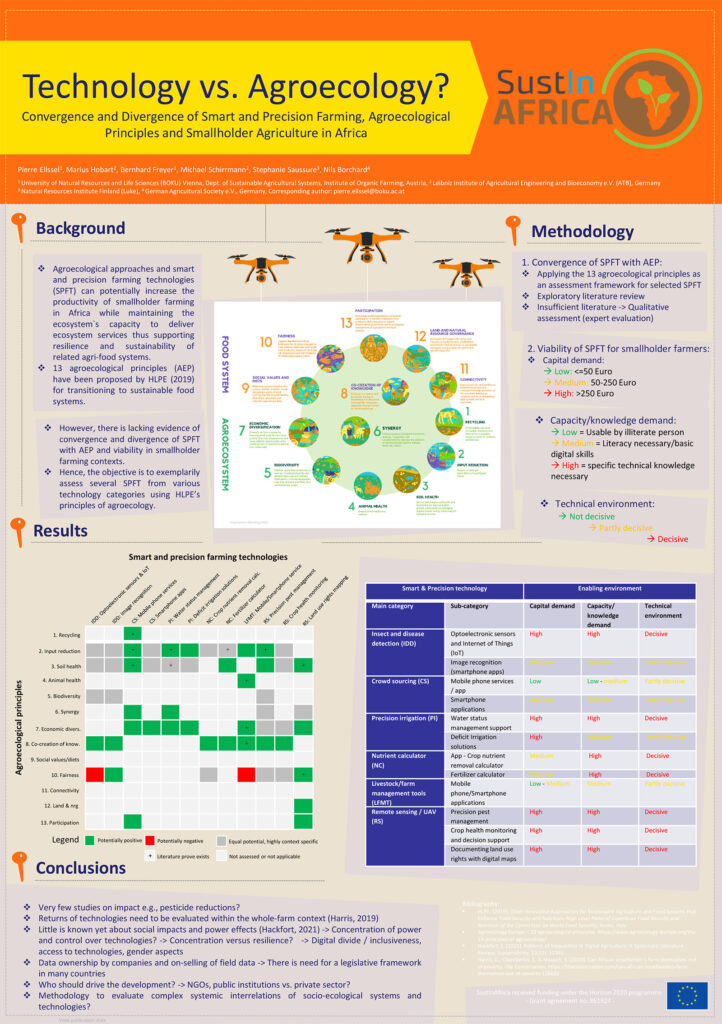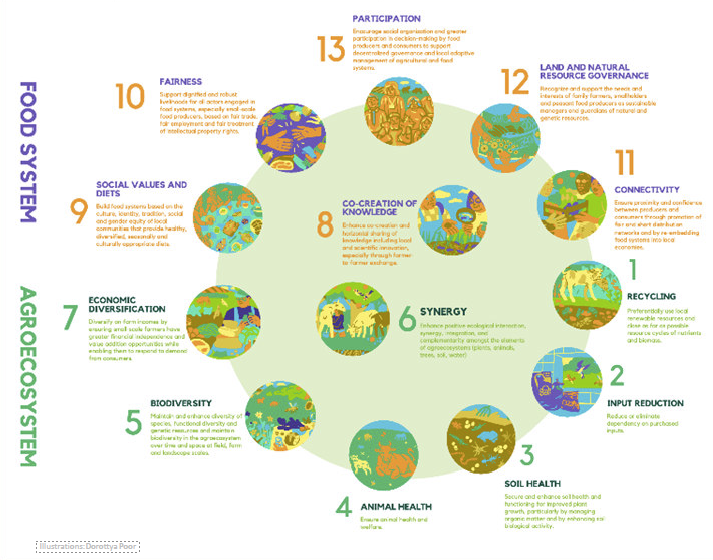Researchers from SustInAfrica participated at TROPENTAG 2022, the conference on International Research on Food Security, Natural Resource Management and Rural Development.
The conference contribution of SIA colleagues dealt with the convergence and divergence of smart and precision farming technologies, agroecological principles and smallholder agriculture in Africa. Agroecological approaches and smart and precision farming technologies can potentially increase productivity of smallholder agriculture while maintaining the ecosystem`s capacity to deliver ecosystem services supporting resilience and sustainability of related agri-food systems.
Science-based understanding of agroecological mechanisms and methods attracted interest at multiple levels including policy and civil society as such holistic approaches address best complex societal and environmental challenges the agri-food sector is facing at multiple scales. Furthermore, agroecological approaches can aid in achieving various Sustainable Development Goals, specifically through the application of ecological principles to agriculture, the use of regenerative practices to natural resources and ecosystem services, and by addressing social equity and responsibility.
Beside of benefits associated to agroecological approaches, increasing evidence from research considers that affordable smart and precision farming methods and technologies such as insect and disease detection, crowd sourcing, precision irrigation, nutrient calculators, mapping and remote sensing technologies are promising for smallholder agriculture in developing countries. However, such beneficial technologies may cause simultaneously negative effects or trade-offs to be assessed prior to their implementation at larger scale.
Hence, a holistic approach was applied by using the High-Level Panel of Experts on Food Security and Nutrition (HLPE) consolidated list of agroecological principles, which are based on FAO’s elements of agroecology, to evaluate challenges, potentials and the feasibility of affordable smart and precision farming technologies with specific regard to improving productivity, resource efficiency, resilience, social equity and responsibility. The work aims to systematically gather knowledge on smart and precision technologies supporting agroecological approaches which need to be appropriately prepared for immediate transfer to farmers, advisors, researchers and policy makers.


